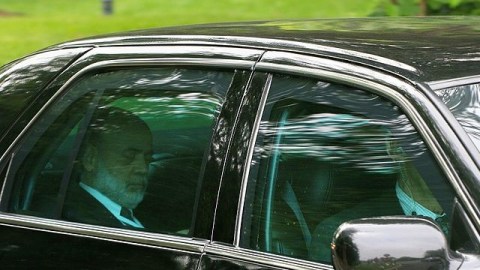Is the Fed Biased?

“If this guy prints more money between now and the election, I don’t know what y’all would do to him in Iowa,” Texas Governor Rick Perry said of Federal Reserve Chairman Ben Bernanke at a campaign stop in Iowa. “But we would treat him pretty ugly down in Texas. Printing more money to play politics at this particular time in American politics is almost treasonous in my opinion.”
Perry’s remarks were in response to a question about the Fed policy—known as “quantitative easing”—of using money that it has issued itself to buy financial assets and increase the money supply. It’s the kind of technical economic policy question most Americans don’t have strong opinions about, and not something that you would think would inspire them to frontier justice. But setting aside the absurdity of the charge that Bernanke would be guilty of treason for using one of the policy tools at his disposal to manage the economy—Perry is hardly the first politician to use overheated rhetoric at a campaign rally—what’s amazing about his remarks is the suggestion that the Fed has been catering to liberals by printing too much money.
If anything, the opposite is true. Bernanke announced this week that the Fed wouldn’t be taking any new action to stimulate the economy. A new round of quantitative easing might or might not be a good idea. Conservative economists generally say that the previous rounds of quantitative easing show the policy doesn’t do much to stimulate the economy, while liberal economists reply that the previous rounds simply weren’t large enough to make a difference. Inflation hawks worry about inflation spiraling out of control, while inflation doves point out that so-called “core inflation”—a measure of inflation that excludes things like food and energy that aren’t good indicators of future price increases—is still moderate, with core producer prices rising just 2.5% over the last year. Some economists, like Kenneth Rogoff, even argue that moderate inflation could help rebalance the economy by shrinking the size of our debt.
As David Leonhardt writes, there are probably more big name economists—like Brad DeLong, Paul Krugman, Christina Romer, Scott Sumner, and Mark Thoma—who think the Fed should do more to stimulate the economy than who think it should do less. But those economists aren’t represented on the board of the Fed, which has consistently been too optimistic about the ability of the economy to recover on its own, and where the primary question has been whether the Fed should do more, not less. Paul Krugman argues that may be in part because of political pressure from politicians like Perry who threaten to restructure the Fed if it loosens monetary any further. It also surely has a lot to do with the fact that the Fed is largely governed by the banks it is supposed to oversee—Nobel Prize-winning economist Joseph Stiglitz went so far as to call its governance structure “corrupt”—which are far more interested keeping inflation low than creating jobs for ordinary Americans.
Photo credit: Shepherd Johnson





